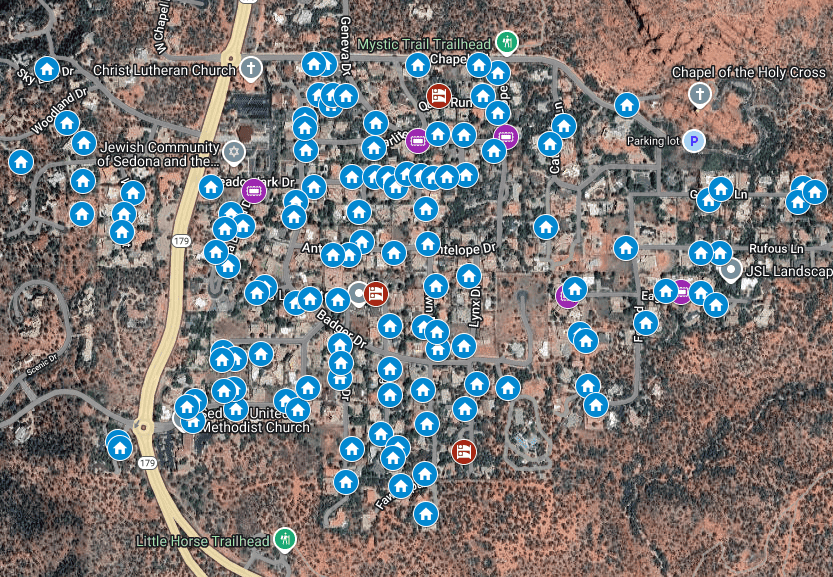City News
STR Rules: Navigating the Growing Complexity Ahead

The Sedona City Council has unanimously approved key amendments to its short-term rental (STR) ordinance, marking a significant step in the city’s regulatory efforts. The decision was made during the council meeting on March 25, following a first reading of the proposals on March 11.
These changes aim to reduce the appeal of owning STRs in Sedona, a goal proposed by Councilman Derek Pfaff in December. According to the council’s materials, there were 1,211 identified STRs within city limits as of December 31, 2024, representing a 6.4% increase from 1,138 in December 2018.
Revised Permit Requirements
The first amendment modifies city code to mandate permits for each individual short-term rental unit rather than permitting on a per-property basis. This enables better enforcement measures against unpermitted rentals. Teresah Arthur, the short-term rental specialist, noted that this change amplifies opportunities for citations against those operating without proper authorization.
Another amendment clarifies that renewed permits remain valid for one year from the expiration date of the previous permit. This adjustment encourages timely renewals, allowing a new permit to begin retroactively at the expiration date. However, late renewals will still incur penalties, reinforcing compliance.
Restrictions on Transferability
Concerns about existing reservations in the event of a sale were addressed. City Attorney Kurt Christianson suggested that sellers and buyers coordinate the ending of the previous permit with the start of a new one. Additionally, Arthur highlighted the option for owners to “pause” their listings to maintain existing bookings while transitioning ownership.
Advertising Restrictions
Another significant amendment bans the advertising of STRs for special events, such as weddings. This regulation aims to prevent misuse of properties intended primarily for residential rental. Arthur noted at least two properties had been identified for previously circumventing this rule.
Accessory Dwelling Units (ADUs)
The amendments also introduce restrictions on accessory dwelling units. Under the new guidelines, ADUs, including guesthouses or casitas with full kitchens, cannot function as STRs unless the primary residence is on the same property. This aims to clarify classifications within the housing regulations.
Arthur confirmed that existing operations would remain unaffected, provided they comply with legal standards. However, the council faced challenges regarding the clarity of definitions related to guest quarters, prompting further discussions about necessary amendments.
During public comments, Dyanna Nichols from the Sedona Verde Valley Association of Realtors emphasized the significant economic impact of STRs, claiming that they support over 3,000 local jobs and urged council members to consider these findings. Conversely, discussions among council members indicated a difference of opinions on how to approach the complexities of STR regulations.
Conclusion
The ordinance received final approval without further debate on March 25. The revisions now stipulate that any ADU issued a certificate of occupancy post-September 14, 2024, cannot be operated as an STR unless the property’s primary structure is also the owner’s residence. Existing guest quarters will maintain their legal nonconforming status, ensuring they can continue to operate under previously established conditions.


















